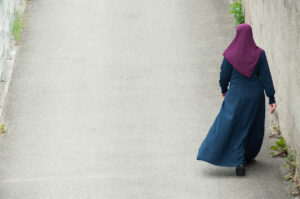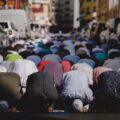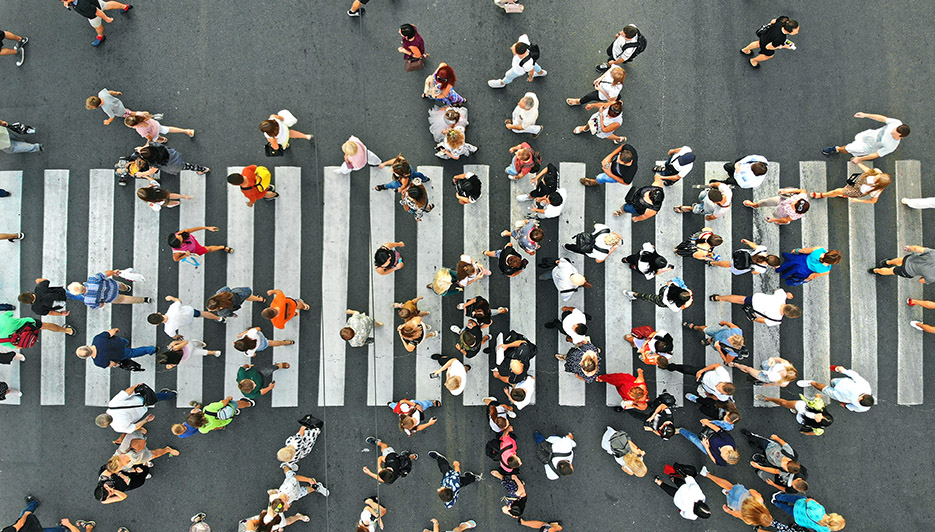Islamophobia: Becoming a global epidemic
Islamophobia: Becoming a global epidemic
The United Nations has declared Islamophobia a global epidemic. Muslims in Europe and elsewhere not only face discrimination and violence, but also significant restrictions to their civic and religious freedoms.
On 4 March 2021, the United Nations (UN) announced that Islamophobia is on the rise across the globe. Ahmed Shaheed, the UN Special Rapporteur on Freedom of Religion or Belief, submitted a report to the UN’s Human Rights Council officially confirming this bleak warning.[1] This announcement came almost a year after the Oxford historian Faisal Devji made a similar declaration. Devji had warned that Islamophobia had spread from “Xinjiang to Germany”[2] to become a global phenomenon.
Declaring an epidemic
In the report, ‘Countering Islamophobia/Anti-Muslim Hatred to Eliminate Discrimination and Intolerance Based on Religion or Belief’,[3] Shaheed confirmed an overall rise in Islamophobic incidents around the globe. Using the terms ‘Islamophobia’ and ‘anti-Muslim hate’ interchangeably,[4] he specifically highlighted the growing number of attacks on and excessive surveillance of Muslims in countries around the world, in European countries as well as in the United States, China, and India.
Shaheed reported that these and other countries across the world, “restrict the right to freedom of religion or belief of Muslims; curtail the enjoyment of freedom of religion or belief by limiting Muslims’ other fundamental rights; and securitize Muslim communities and/or their organizations.” Shaheed strongly encouraged “states to take all necessary measures to combat direct and indirect forms of discrimination against Muslims and prohibit any advocacy of religious hatred that constitutes incitement to violence.”[5]
Key examples featured in the report included China’s systematic abuse, detention, and indoctrination of minority Uyghur Muslim ethnic group in the Xinjiang Province, and the US government’s Controlled Application Review and Resolution Program for immigrants from “Arab, Middle-Eastern and South-Asian countries.”[6]
The report also focused on data from Europe. For example, almost 4 in 10 Europeans held unfavourable views of Muslim[7] and anti-Islamic attacks peaked in 2017.[8] Moreover, out of 600,000 Dutch news items in 2016 and 2017, the adjectives most used to describe Muslims were ‘radical’, ‘extremist’, and ‘terrorist’, while Dutch people were conversely described as ‘known’, ‘average’, and ‘beautiful’.[9]
The report highlighted a number of reasons why this Islamophobia had escalated to “epidemic” proportions.[10] Some of the reasons are institutional suspicion of Muslims because of ongoing acts of terrorism, starting with the horrific 9/11 terrorist attacks in the US in 2001. Others are the rise of far-right groups driving in hate toward Muslims and the widespread negative representations of Islam communicated by mainstream media, politicians, popular culture, and academic discourse.[11] As a result, “Islamophobia builds imaginary constructs around Muslims that are used to justify state-sponsored discrimination, hostility, and violence against Muslims with stark consequences for the enjoyment of human rights including freedom of religion or belief.”[12]
Three days later
Shaheed raised alarms about how “Muslim women may face a ‘triple penalty’ as women, minority ethnic and Muslim.”[13] Islamophobic discrimination particularly left them vulnerable in Muslim minority states, who were frequently targeted for their visible ‘Muslim’ characteristics, including religious attire like face coverings.[14] Three days after Shaheed’s report, on 7 March 2021, Switzerland – like a number of other countries across Europe – voted in favour of banning face coverings in public including the burqa or niqab worn by Muslim women. Passed by a narrow referendum count of 51.2% to 48.8%, the ‘burqa ban’ campaign was launched in 2016 by the right-wing Swiss People’s Party (SVP)[15] which campaigned with warnings of Islamic extremism such as “Stop extremism.”[16]
With the leading Swiss Islamic group Central Council of Muslims calling it “a dark day” for Muslims,[17] Shaheed tweeted against the ban: “Swiss voters have chosen the eve of the International Women’s Day to vote in a measure that violates the freedom of religion or belief and freedom of expression of women and which discriminates against women! A cloak of ‘democracy’ does not hide the underlying bigotry.”[18] The Swiss government and parliamentary majority both had opposed the SVP’s ‘burqa ban’ campaign, not only because they did not want to dictate what women wear but also because it was deemed unnecessary.[19] Before the vote, research by the University of Lucerne found that almost no one in Switzerland wears a burqa, and only around 30 to 150 women wear the niqab.[20]
The ghost of Islam: super-spreading across the globe
The UN’s Human Rights Council and Switzerland referendum exemplifies how Islamophobia is super-spreading across the globe: the majority of Muslims are being held responsible for the horrific acts in the name of Islam by a minority of Muslims. Muslims are in effect being demonised. Long before Devji and Shaheed, the anti-imperialist Pakistani thinker Eqbal Ahmed predicted demonisation would happen: “This third time… in the last 1,400 years that there is this organized attempt to demonize Islam. This time it’s more organized and sustained, because the means have changed. Today there is mass communication…After the Cold War, Western power was deprived of both the mission and the ghost. In search of menace, they have turned to Islam. It’s the easiest, because it has a history.”[21]
Interested in similar topics? Go to our Dashboard and get free updates.
Sources
[1] Anti-Muslim hatred at ‘epidemic’ proportions: UN expert
[2] From Xinjiang to Germany: how did Islamophobia become a global phenomenon? | Faisal Devji
[3] Call for input: Report on Anti-Muslim Hatred and Discrimination
[4] Islamophobia on the rise, according to United Nations report
[5] Anti-Muslim hatred at ‘epidemic’ proportions: UN expert
[6] Islamophobia on the rise, according to United Nations report
[7] Anti-Muslim hatred at ‘epidemic’ proportions: UN expert
[8] Islamophobia on the rise, according to United Nations report
[9] Islamophobia on the rise, according to United Nations report
[10] Anti-Muslim hatred at ‘epidemic’ proportions: UN expert
[11] Anti-Muslim hatred at ‘epidemic’ proportions: UN expert
[12] Anti-Muslim hatred at ‘epidemic’ proportions: UN expert
[13] Anti-Muslim hatred at ‘epidemic’ proportions: UN expert
[14] Anti-Muslim hatred at ‘epidemic’ proportions: UN expert
[15] Swiss vote to ban face coverings in public
[16] Switzerland referendum: Voters support ban on face coverings in public
[17] Switzerland referendum: Voters support ban on face coverings in public
[18] UN religious freedom expert blasts Swiss burka ban vote
[19] UN religious freedom expert blasts Swiss burka ban vote
[20] UN religious freedom expert blasts Swiss burka ban vote






